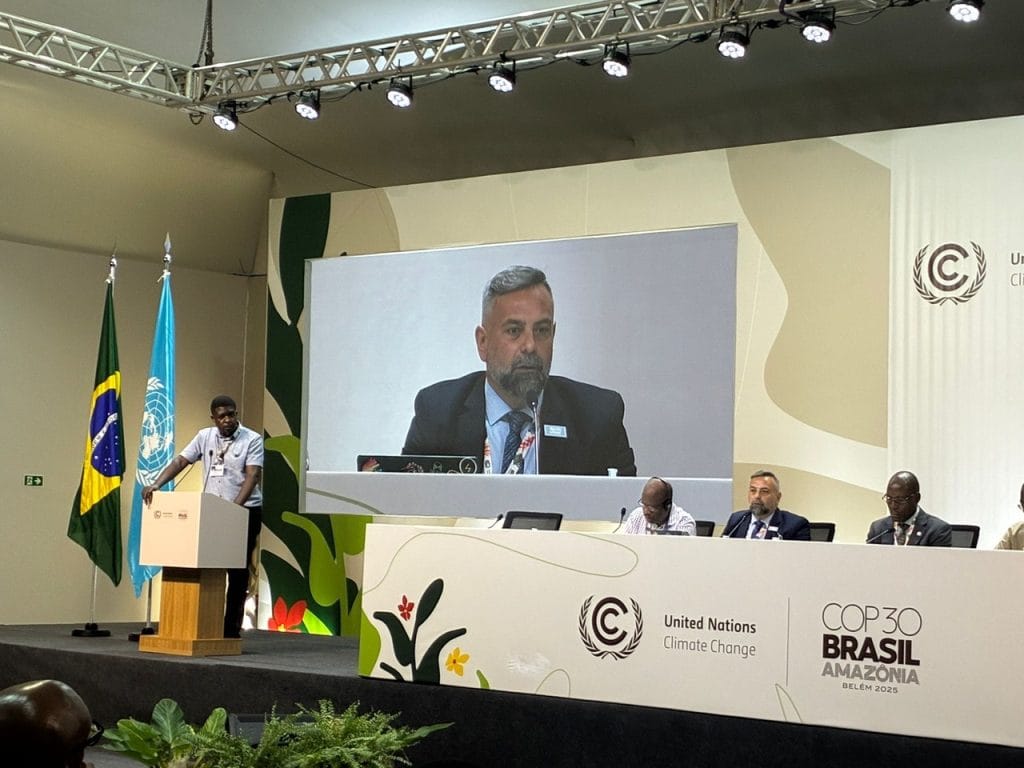Malawi Launches First AI-Verified Paris Agreement Platform, Setting New Global Standard for Climate Finance Integrity

Malawi Debuts World’s First AI-Enabled Paris Agreement Integrated Platform at COP30 The First-of-Its-Kind Environmental Treasury Puts Artificial Intelligence at the Center of this Year’s Climate Talks
Belém, Brazil/India/Singapore, 15 November 2025 — On Finance Day at COP30, the Government of Malawi is reshaping the future of Environmental Finance on the global climate stage. Unveiling the world’s first AI-driven, blockchain-verified Paris Agreement Implementation Platform (PAIP), Malawi introduced an Environmental Treasury that could transform how nations measure, report, verify, and auction their climate actions.
Developed in partnership with the Green Economy Partnership (GEP) and TRST01, the PAIP integrates artificial intelligence, smart contracts, satellite imagery, machine learning models, and immutable blockchain infrastructure to monitor emissions and verify climate projects with scientific precision. By securing every credit and transaction on a public ledger, Malawi aims to demonstrate that an African nation can not only meet its Paris commitments but also pioneer a transparent, investor-ready marketplace for climate finance.
The PAIP links every step of the national emissions value chain—inventory, project origination, validation, auctioning, and retirement—into a single digital ecosystem. Designed within the Green Economy Partnership and built by TRST01 as the core technology partner, the system is tailored to Malawi’s national priorities and will be offered free of charge to other Global South nations to accelerate Article 6 implementation and democratize access to advanced climate technologies.
Richard Perekamoyo, Principal Secretary, Ministry of Natural Resources and Climate Change, Republic of Malawi, emphasized that the platform enables Malawi to “track every ton of CO₂ for its efficacy, every hectare restored and the returns in terms of GDP, IRR and jobs of every dollar invested with scientific precision, strengthening trust in our national data and results.”
By embedding AI into a national emissions data lake and validating activity through blockchain, Malawi gives global financiers confidence that every tonne of CO₂ avoided or removed, every hectare restored, and every dollar invested delivers independently verifiable outcomes. The system will automate national GHG inventories, long-term strategies, climate project matching, resilience scoring, and data confidence indexes; while providing auditable evidence for regulators and verifiers.
“Integrity begins with data,” said Ivano Iannelli, Chief Sustainability Officer at GEP. “By embedding AI within the national emissions data lake and securing it via blockchain, Malawi is creating a new standard of transparency and accountability that can raise investment across the Global South.”
Hon. Jean Mathanga, Minister of Natural Resources and Climate Change, highlighted that the initiative signals a new era for African leadership in climate innovation and governance. The PAIP offers Malawi a pathway to attract green capital and unlock new economic opportunities. For other developing countries, it serves as a ready-to-deploy blueprint for turning climate commitments into investable national assets—without the high entry costs of traditional MRV systems.
Following the global debut, GEP plans to scale PAIP across Africa, Asia, and Latin America through its Digital Climate Transformation Program. By providing Global South governments with an integrated system at no cost, GEP and TRST01 aim to accelerate Article 6 projects and ensure climate finance flows transparently to the nations that need it most.
Related Article: COP30 Day 2 Recap








